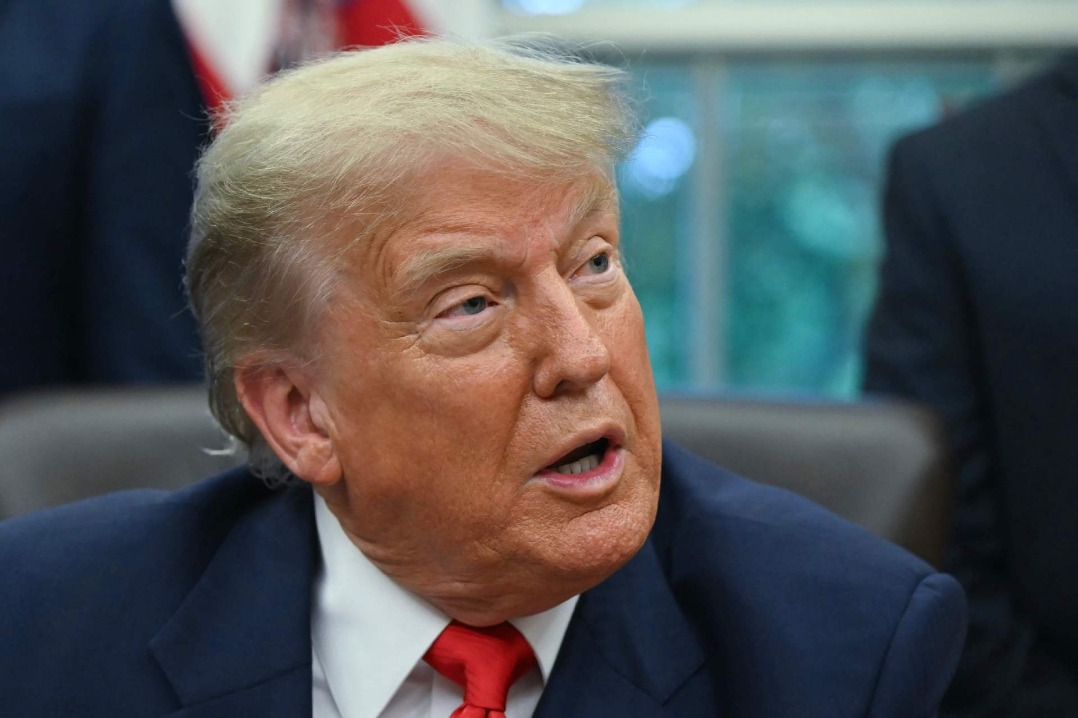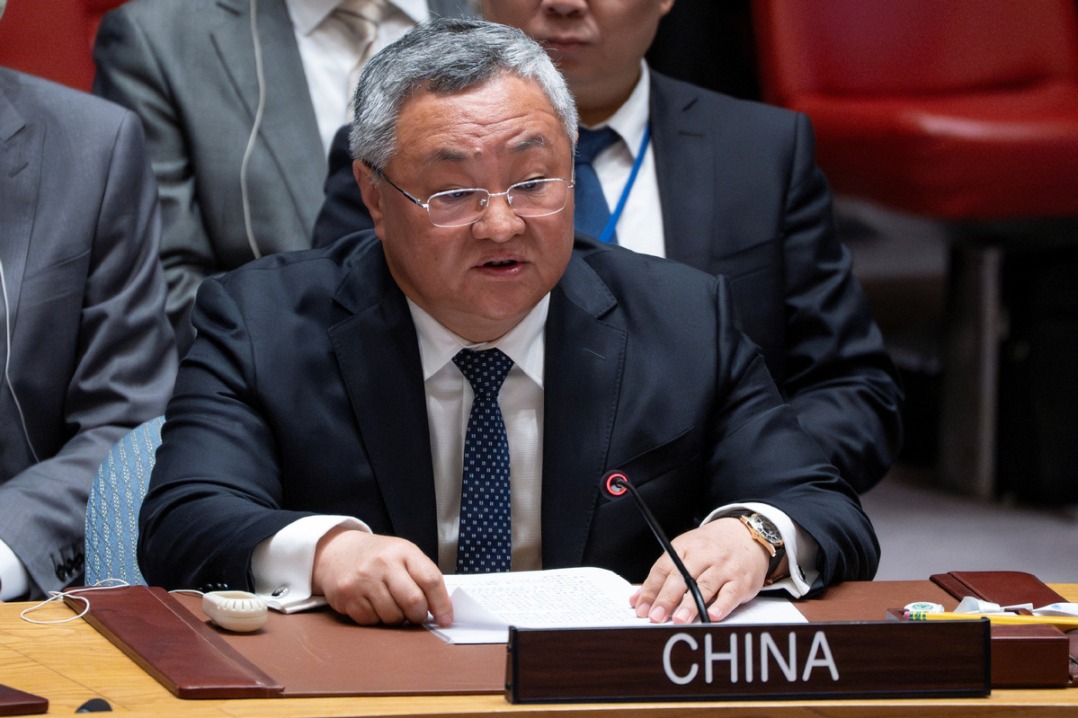Constructive engagement benefits China, US and world

United States President-elect Donald Trump said last week that Beijing and Washington could work together "to solve all of the problems of the world", a surprising statement barely a month before he returns to office.
While the new administration is widely expected to adopt a harsh stance against China, including a potential steep increase in tariffs on imports from China, Trump's latest gesture shows that even the US has realized the importance of communication and cooperation between the two largest economies in meeting the many challenges the world is facing.
Trump's message is in line with what President Xi Jinping said in his congratulatory message to him on his election as the 47th president of the United States in November. Xi emphasized China's commitment to constructive engagement between Beijing and Washington. In his message, Xi underscored China's readiness to reinforce communication, manage differences effectively and forge a relationship that benefits both nations as well as the international community as a whole.
Xi's message resonated deeply within the international community, particularly as it emphasized principles of mutual respect, peaceful coexistence and win-win cooperation.
These foundational ideals have been the bedrock of China's foreign policy and are now pivotal as both nations confront pressing issues, including economic growth, technological advancement, climate change and global security.
The message encapsulates China's viewpoint that cooperation is far more beneficial than rivalry, and sustainable bilateral ties could be a driving force for global stability. Maintaining a stable, healthy and sustainable China-US relationship aligns with the broader aspirations of the international community, fostering global peace, prosperity and development.
The mutual interests of the two countries are many and include collaboration on pressing global issues like climate change, trade, technological advancement and regional peace. The US should approach China with an eye toward common goals and mutual benefits rather than unilateral advantage. Communication can allow both countries to see that their overlapping interests outweigh their differences and that disagreements can be constructively managed.
For these two nations, establishing a stable partnership is not simply a matter of bilateralism but a responsibility toward the global community, as they collectively contribute to the world's stability and growth. The effects of this partnership, through the lens of cooperation and mutual benefit, underscore the importance of cultivating a cooperative dynamic.
China has never been interested in major-power competition for dominance but rather in building a framework for cooperation that is open, respectful, and geared toward a shared future. These ideals reflect China's pursuit of modernization and a better quality of life for its people, balanced with a dedication to global cooperation and reform.
The reality is that shared economic growth amplifies opportunities for both countries and enhances global market stability. This interconnectedness also emphasizes the need for a balanced approach in managing trade and technological exchange, as well as reconsidering restrictive policies, such as the semiconductor embargoes. From a broader perspective, China's strides in independent innovation can complement the US market, provided there is a climate of trust and reciprocity.
As the world undergoes changes "unseen in a century", it is imperative for China and the US to find ways to coexist peacefully. The international community widely believes that the actions and policies of these two countries have direct ramifications on global issues, from economic stability to humanitarian aid and international security. The two countries hold a shared responsibility to act as pillars of global peace, contributing to international development and unity.
China and the US can jointly address issues that neither can resolve alone, like pandemics, transnational security threats and climate change. This viewpoint resonates with a growing global consensus that collaborative leadership is essential for a more stable and interconnected world.
A balanced approach rooted in cooperation rather than rivalry has the potential to yield mutually advantageous outcomes. The development paths of China and the US are not necessarily competitive but can be complementary, with both countries benefiting from each other's successes.
With a new administration in Washington, the time is ripe for constructive engagement that focuses on long-term cooperation built on a foundation of mutual respect, acknowledging that each side has unique needs and perspectives that must be addressed thoughtfully.
China remains committed to establishing a constructive, mutually beneficial relationship grounded in the principles of peaceful coexistence and respect. China's policy toward the US has consistently embraced mutual respect and peaceful coexistence.
The global community has expressed considerable interest in China-US relations due to the profound impact they have on international peace, security and development. In today's interconnected world, both countries have a shared responsibility to foster a stable international environment. China and the US must align their efforts in ways that benefit both countries and the world, upholding a shared commitment to peace and prosperity.
As history has shown, a collaborative approach between China and the US is a recipe not only for their prosperity but also for global stability and development.
The author is the executive director of the Pakistan Research Center for a Community with Shared Future in Islamabad.?The views do not necessarily reflect those of China Daily.

































